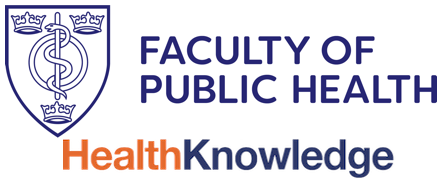PLEASE NOTE:
We are currently in the process of updating this chapter and we appreciate your patience whilst this is being completed.
Grey literature has been defined as 'that which is produced on all levels of government, academics, business and industry in print and electronic formats, but which is not controlled by commercial publishers.'1 A “commercial publisher” has since been specified as one who’s primary activity is publishing2.
Grey literature has also been broadly defined to include everything except peer-reviewed books and journals accepted by Medline. It has not been published in a conventional way, and can be difficult to identify and obtain through the usual routes, and for this reason it is known as ‘grey literature.’
Locating grey literature
Grey literature comprises a wide range of material, including government publications, reports, statistical publications, newsletters, fact sheets, working papers, technical reports, conference proceedings, theses, policy documents, protocols and bibliographies.
Papers are often written to inform funding bodies about the results of research projects or to present preliminary results at conferences or as dissertations. Such material is disseminated quickly, often in limited numbers, and seldom undergoes any formal publication process. Even if it has not been peer reviewed its content may still be useful3 and the authors of systematic literature searches should make efforts to identify this type of literature.
However, identifying and tracing grey literature poses several challenges. Basic information such as author, publication date or publishing body may not be easily discerned, making it difficult to locate and then cite documents. Low print runs may also make it difficult to locate. This is less of an issue with internet publishing, but government or organisational reports, for example, are seldom linked from websites indefinitely (“link rot”). The copyright status of potentially usable grey literature may prevent digital archiving and access. For these reasons, a large proportion of grey literature will remain “hidden”.
The lack of editorial control may also raise questions about the authenticity and reliability of documents, and the quality of grey literature can vary considerably3
Producers of grey literature
A wide range of organisations produce a significant amount of grey literature related to public health, health policy and epidemiology. These include:
- Government health agencies, such as the Centers for Disease Control and Prevention (CDC) and the National Institutes for Health (NIH) in the United States, and the UK Department of Health.
- Universities and other research centres
- International agencies, e.g. World Health Organization (WHO) and UNAIDS.
- Non-profit organisations, e.g. the Nuffield Trust, an independent UK health charity
- Health institutes, e.g. the National Institute for Health and Care Excellence (NICE)
- Think tanks, e.g. The King’s Fund library database
Grey literature on the internet
There is debate about the place of internet search engines in literature searching, and some scientists argue strongly that it is not a valid source of information. However, in reality, the internet provides increasing opportunities to access grey literature. Search engines such as Google have become a major route by which grey literature can be made accessible to a wide international audience.
Several websites that provide a gateway to this type of literature include:
- OpenGrey – a database of grey literature in Europe
- GreyLit – The Grey Literature Report database, which includes relevant literature in health and science policy, and public health
- GreyNet – an independent organisation promoting access to grey literature, which provides links to sources of grey literature
- Google Scholar – includes citations from the grey literature as well as those from academic publishers
References
- Fourth International Conference on Grey Literature: New Frontiers in Grey Literature. GreyNet, Grey Literature Network Service, Washington DC, USA, 4-5 October 1999.
- Schöpfel, J.; Farace, D.J. (2010). "Grey Literature". In Bates, M.J.; Maack, M.N. Encyclopedia of Library and Information Sciences (3rd ed.). CRC Press.
- Mathews B. Gray literature: Resources for locating unpublished research C&RL News 2004; 65: 3
Resources
- The New York Academy of Medicine produces a quarterly publication The Grey Literature Report (Available at http://www.nyam.org/library/greyreport.shtml)
© Helen Barratt, Maria Kirwan 2009, Saran Shantikumar 2018
